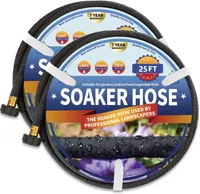Is watering plants at night a good idea? Experts discuss why it could put plants in danger
The cooler temperatures mean less water lost to evaporation, but it can encourage fungal diseases
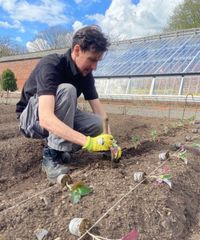
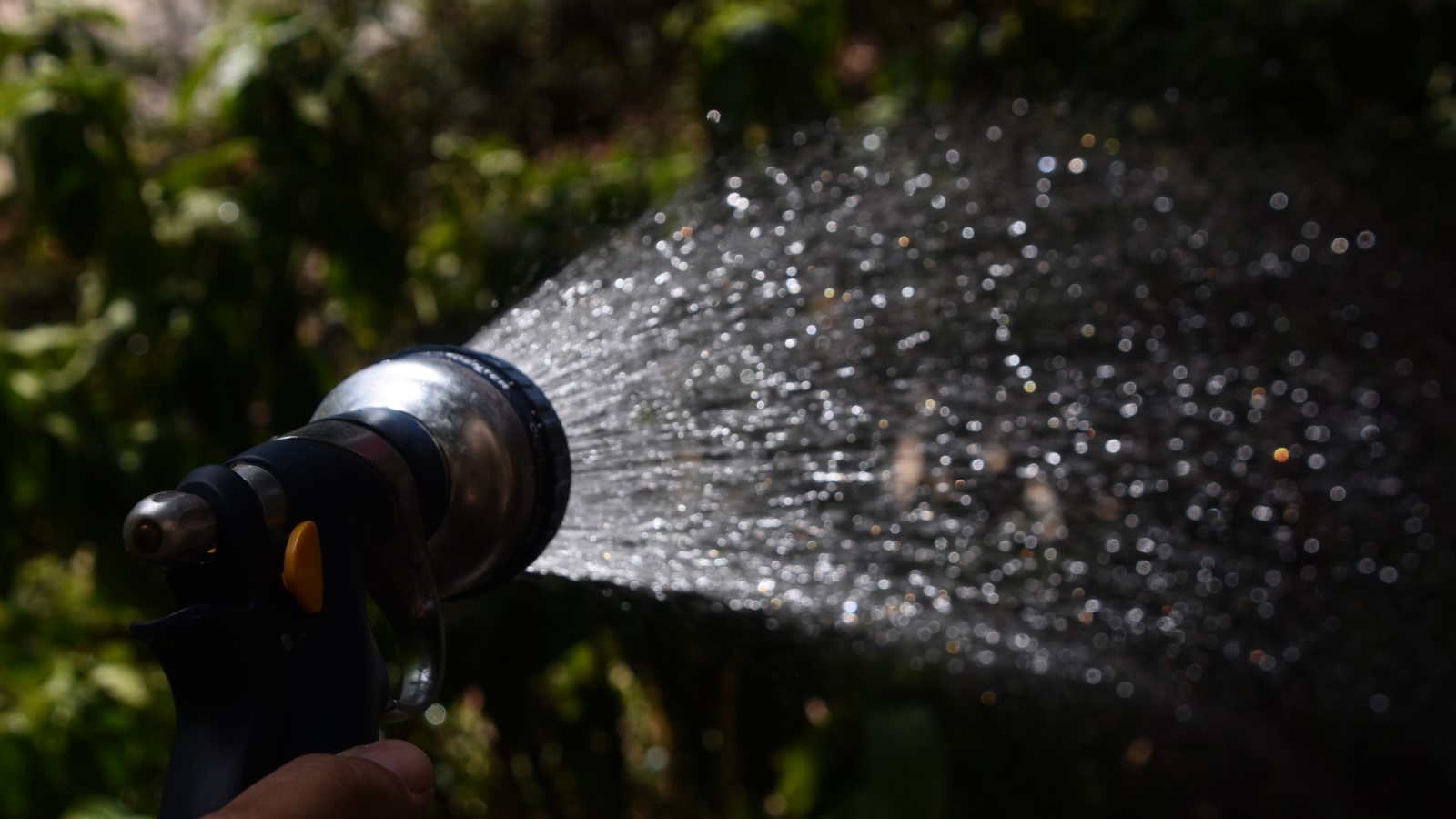
It is the general consensus that watering plants in the morning is the best time. The evening is also recommended as better than in the heat of the day, but what about late into the evening or even having irrigation systems on overnight, will that cause any harm to plants?
The problem can often be that people have busy lives, but is watering plants at night always a bad idea? While it does offer benefits there are admittedly also risks attached to it, in terms of fungal problems and overwatering due to a lack of monitoring if you are using automatic systems.
If you find it difficult to squeeze time in your hectic schedule for when to water plants, then it may not be the end of the world to water at night occasionally. However, the experts do recommend not making it a regular thing.
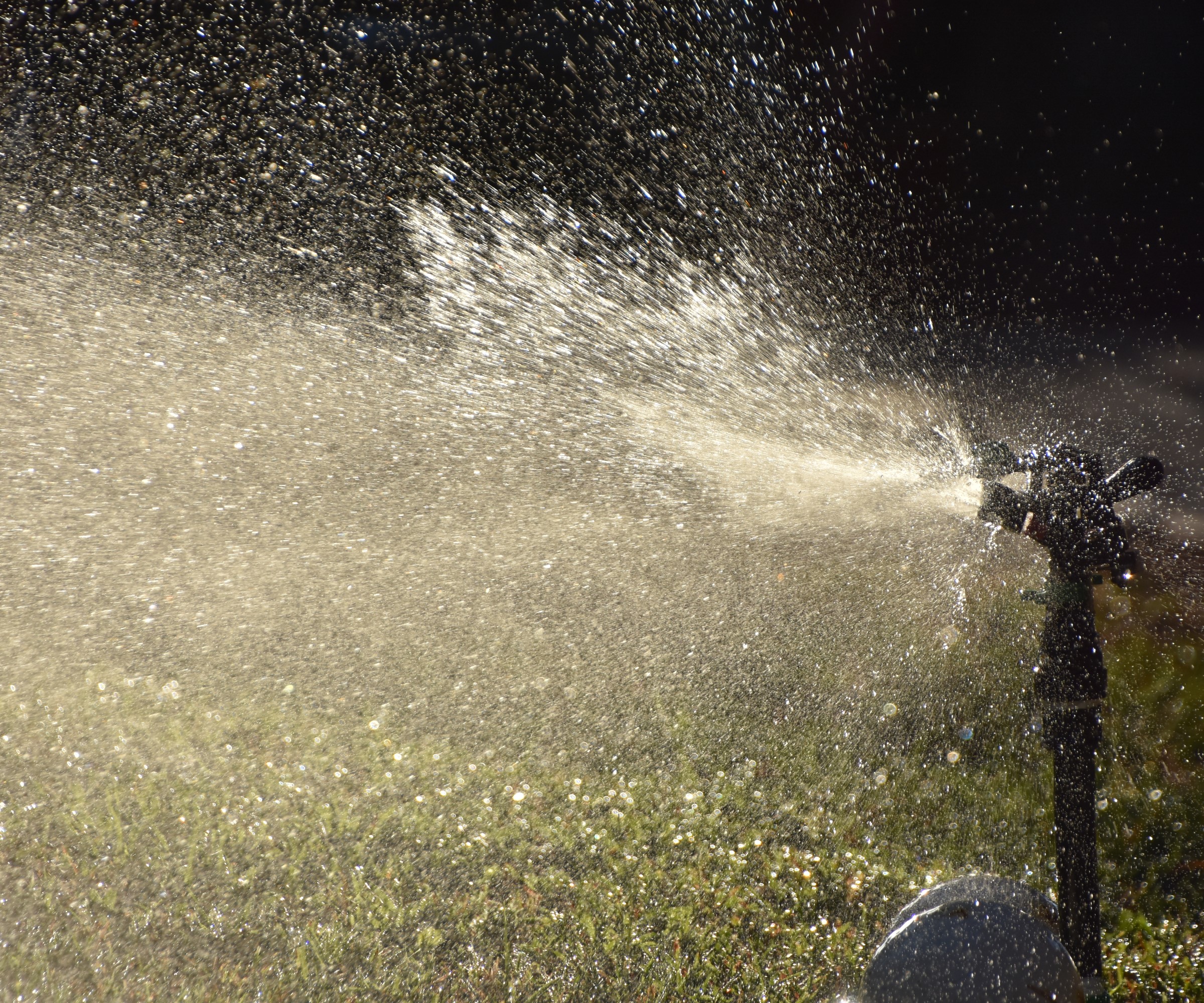
Gardeners commonly run sprinklers after dark
Is it ok to water plants at night?
Watering plants in the morning is known to be the best time, as the temperatures are cooler and the risks of losing moisture to evaporation is less than in the heat of the day.
If not the morning, then watering in the evening is the next best option. This can include heading out into the backyard with a hose or watering can, or putting irrigation on overnight to water your flower beds or lawn. It is never recommended to water at the hottest times of day and doing so is a common garden watering mistake.
The main potential advantage to watering at night is it helps to minimize water loss, thanks to cooler temperatures. This makes more water available to the plants as it is retained in the soil for a longer period of time. As there is no direct sunlight also, compared to watering plants in hot weather, it reduces any risk of leaf burn from water sitting on the foliage.
Eric DeBoer, an agronomist with Simple Lawn Solutions, claims it is fine to water plants at night ‘as long as you’re not drenching the foliage’. He says: ‘Watering at night or overnight will work just fine if using a soil drench and aiming at the bases of plants.’
Design expertise in your inbox – from inspiring decorating ideas and beautiful celebrity homes to practical gardening advice and shopping round-ups.
Drip irrigation or soaker hoses are examples of irrigation that is capable of slowly and accurately delivering water to the soil and avoiding wetting the foliage.
However, professional landscaper Quinten O’Dea, describes watering plants at night as ‘not a good idea’. He claims you ‘can get away’ with doing it every now and then, but advises against a routine schedule of night watering.
‘The ground remains damp for several more hours than it usually would. If routinely watered this way, it would encourage fungal growth and unhealthy cycles of microbiota in the soil. It could lead to spikes of fungi and unwanted moss.’
25 FT Soaker Hose for Garden Bed | Available at Amazon
This soaker hose will evenly distribute water over the entire length of the hose through small pores in its rubber material. It means the soil, and not the foliage, receives the water slowly over an extended period of time. It can help save water and make sure the water used is targeted at the right area.
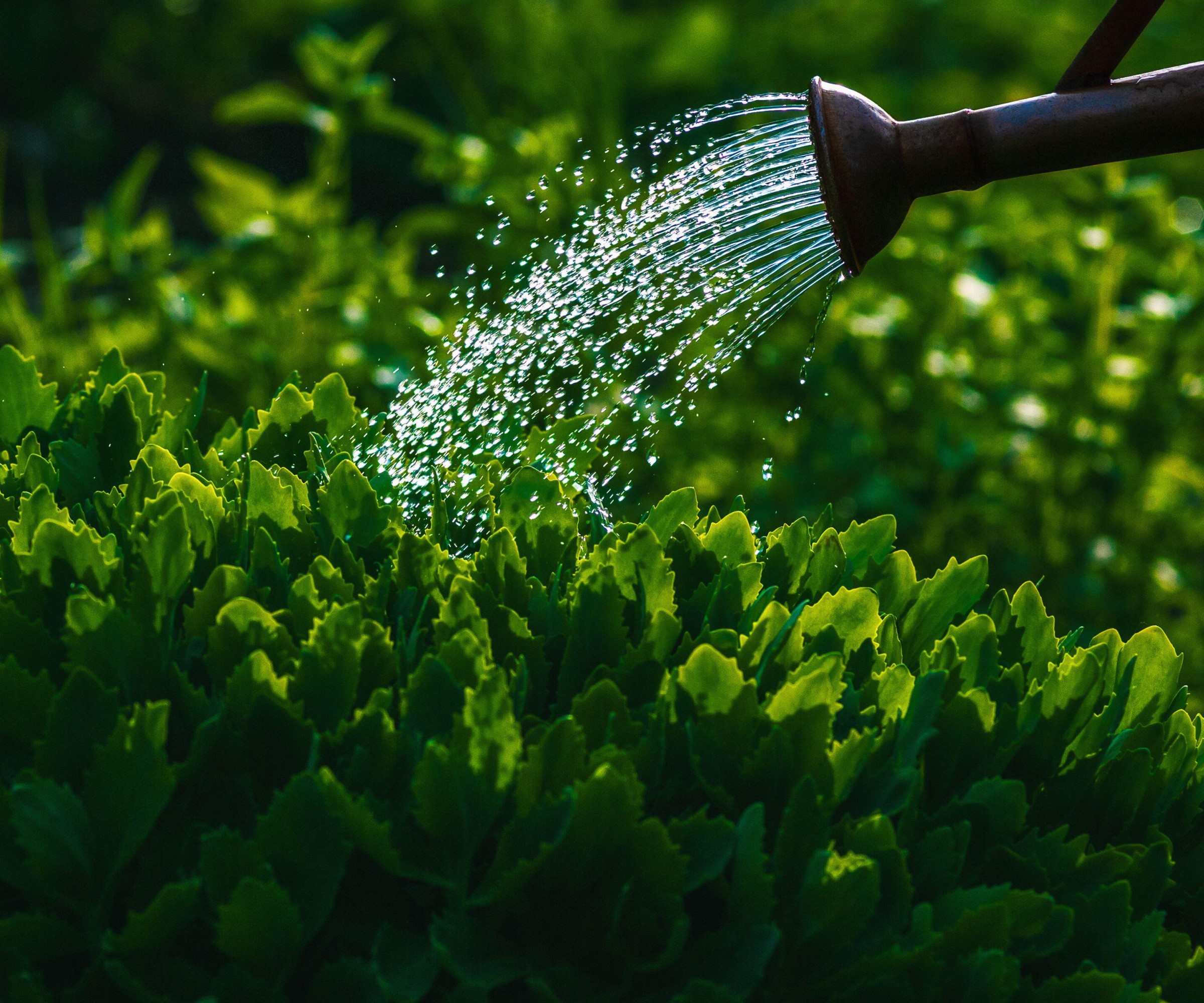
It is better to focus the water at the soil rather than over the top of plants
Dangers of watering plants at night
There are a few significant risks when it comes to watering plants at night, the main one is the aforementioned danger of fungal growth and diseases. Watering plants at night can increase the risk of these fungal diseases as the moisture creates a damp environment that is perfect for the growth of fungus. This can leave plants at increased risk of fungal problems such as powdery mildew and leaf spot.
The main risk comes from moisture on the foliage, but also the wet soil can act as a favorable environment for fungus. And pests like slugs and snails will also be more active in these damp conditions.
You can control where and how much water you apply when watering by hand late in the evening, though this is not possible if you leave irrigation on overnight. This lack of monitoring can increase the risk of waterlogging and overwatering, which can lead to root rot and the demise of plants.
You can take precautions when watering at night or overnight. This includes using a targeted approach to deliver water directly to the soil and also using timers, available at Amazon, if you do plan on running irrigation systems overnight.
However, landscape designer Samuil Iliev still warns to avoid watering overnight ‘just to be on the safe side’ as it is difficult to monitor levels and the potential for problems always exists.
He adds: ‘Overnight watering offers no advantage to any specific plant and it could cause overwatering especially if not set up properly or in the case of a faulty watering timer.
‘The reason some people do this is to decrease water loss through evaporation. But this can easily be accomplished if the watering happens early in the morning. And it is better because the soil is cool and the water can be absorbed much easier.’

Samuil Iliev is a certified permaculture designer and landscape
designer. He writes about permaculture, regenerative agriculture, farming,
gardening, and more at SamuilIliev.com
FAQs
Do plants take up more water at night?
If you are looking for garden water-saving tips, plants do absorb water during the evening and into the night but not any more than in the morning. Plants will take up water throughout the day, though they are most ready to absorb water through their roots in the morning. They will then take in more moisture during the day than they do at night and watering in the morning allows the plants to take in all the water required to set them up for the day ahead.
If you are struggling to find time to water your plants, then there are methods you can consider to take some of that strain off of watering the backyard. Choosing more drought tolerant planting ideas can lessen that burden, and utilizing the likes of self-watering planters or garden ollas can help keep plants watered for longer to help give you peace of mind.

Drew has worked as a writer since 2008 and was also a professional gardener for many years. As a trained horticulturist, he worked in prestigious historic gardens, including Hanbury Hall and the world-famous Hidcote Manor Garden. He also spent time as a specialist kitchen gardener at Soho Farmhouse and Netherby Hall, where he grew vegetables, fruit, herbs, and cut flowers for restaurants. Drew has written for numerous print and online publications and is an allotment holder and garden blogger. He is shortlisted for the Digital Gardening Writer of the Year at the 2025 Garden Media Guild Awards.
